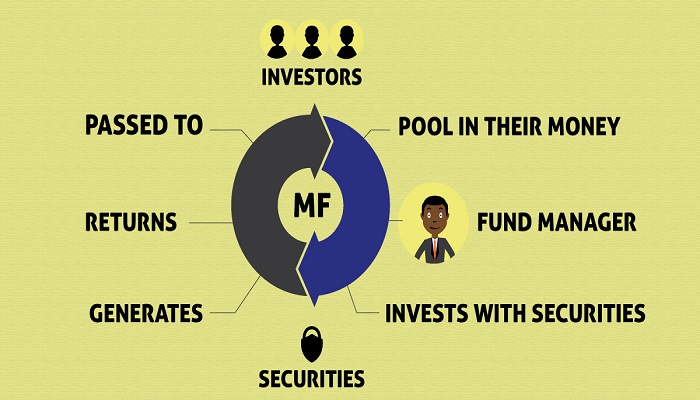Nigerian mutual fund investors’ love for high yield and their fear of the unknown seem to have conspired against equity-based funds. This conspiracy has resulted in equity funds suffering net outflows month after month for quite some time.
Equity Funds Timeline of Shrinking
The total assets of equity funds as a percentage of total mutual fund assets keeps sliding in the average of 0.4% monthly. According to analysis by Quantitative Financial Analytics, as at December 31, 2013, when mutual fund total assets stood at N115 billion, 34.9% of that was invested in Equity Mutual Funds while Money Market Funds and Fixed Income Funds had 24.6%, and 13.6% respectively making Equity-Based Funds the largest fund category then.
[wpdatachart id=259]
By the end of 2014, investors began to discover money market funds and gradually started to fall in love with the yields being offered by money market funds. Arising from that new-found love, Money market fund’s contribution to the overall mutual fund asset in Nigeria increased to 32.7% while that of Equity funds decreased to 18.3%. That bloodletting continued in 2015, when, by the end of the year, the asset under management in money market funds had increased further to 56.4% and that of equity funds, shrunk further to 10.3%.
Enter 2016, and Equity funds tend to recover some lost grounds, thanks to the contributions made by the then newly introduced equity funds like AXA Mansard Equity Market Fund, FBN Beta Equity Fund and Meristem Equity Market Fund. With those introductions, Equity funds’ share of total mutual fund assets increased marginally to 12.3%, an increase of 2% over its 2015 share.
However, that recovery did not last as the bloodletting from equity funds continued in 2017 when it lost about 5% of its share of mutual fund assets to end the year with just 7.2% share. By the same period, money market funds’ share had ballooned to 68%. Fast forward to the latest edition of the NAV Summary report released by the Security and Exchange Commission on July 27th, 2018. Analysis of that report indicates that of the total mutual funds’ asset of N652.8 billion, only N29.9 billion or 4.6% is invested in equity mutual funds.
What is the reason for this trend
The reason why fund investors continue to embrace money market funds at the expense of equity funds could be due to lack of transparency in equity funds. While it is quite easy to see the yields of money market funds readily available on most mutual fund managers’ websites, the returns of equity funds are not so easy to see, and most retail investors may not be inclined to doing the calculation.
Besides the availability of money market fund yield, it is not clear how much of such publications are understood by investors, especially retail investors. Going by the vibes from discussion forums, it appears that retail investors interpret the published yields as monthly or daily returns because the fund managers’ websites do not indicate whether the published yields are YTD, MTD or daily returns. Such misinterpretation has the effect of endearing investors to such funds.
Another reason is the popularity of treasury bills in Nigeria so much such that investors who are not able to invest directly into treasury bills try to gain exposure to them and benefit from treasury bill yields by investing in money market funds.
The average Nigerian is known to be conservative except when it comes to exotic cars, flashy houses and bling (if you know what I mean). This conservatism has led to risk aversion in stock market investing which has translated into an unequivocal love for fixed income securities.
Passive Fund Managers
It does appear that Nigeria mutual fund managers are applying passive management in their investment strategy because money market funds do not require as much rebalancing as equity funds. They seem to be happy collecting their management fees without much ado.
It is time for the fund managers to become more creative in their active fund management. They should start looking into investing across the shores of Nigeria with a view to increasing value for unitholders, of course, within limits of relevant regulations.
All said and done if this trend continues, and we think it will, given the current performance of the equity market, there may not be equity mutual funds in the near future.
